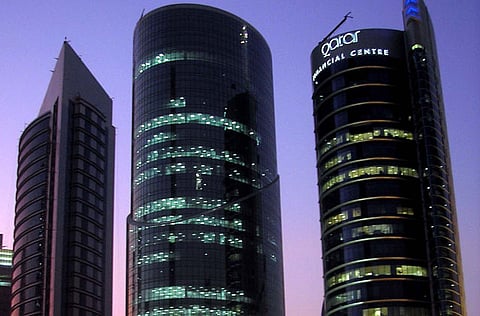Gulf financial centres getting back on track
Emergence from economic hiatus means focus can return to strategic goals

With recovery among the economies of the Gulf seemingly assured, it may be time to accept the resumption of some degree of normality in this increasingly prosperous region. Conceivably, the GCC states can view the critical period as having passed, and concentrate on the infrastructural issues to be undertaken.
Building a financial sector worthy of global attention became a preoccupation around the capitals of the region many years ago. By the mid-1990s the talk was of Dubai rising and rivalling Bahrain as an international hub, indeed drawing some business away.
The idea followed of a collection of niche centres, while many observers have recommended the merits of consolidation.
The global financial crisis and the Arab Spring not only interrupted those plans but brought other pressures to bear. Still, upon reviewing the impact of the global financial crisis, in 2010 the IMF observed there had been “an adverse impact on financial institutions, but no systemic consequences”. We now appear to have pulled away quite decisively from that difficult environment and residual sense of risk.
Last November a hefty, eye-catching document was issued by Deutsche Bank Research providing a detailed review and outlook of the Gulf’s financial development in the wake of these epochal events. Others, not least the IMF, have waded into the same territory.
The bank’s study noted the continuing political priority given to the industry of finance, and judged that the economic resilience that has been displayed gave the region “a solid chance” of succeeding in this field.
Nonetheless, it observed also the dampening of past euphoria, and recited the litany of structural obstacles to be dealt with in future, in order essentially to achieve the kind of reliabilities, refinements and governance shown by developed counterparts around the world.
The author of the Deutsche Bank Research report, Steffen Kern, highlighted the state of play succinctly. “At below 1% of global assets, GCC financial markets remain small and behind their potential,” he deduced, adding that there is considerable room to grow, while facing tough challenges from the established Western markets and indeed from the dynamism of the emerging nations.
In essence, that report had too much to discuss in such limited space. Suffice to say that Kern mentioned steps to be taken in respect of each of domestic banking, equity and corporate debt markets, Sharia-compliant financing, derivatives and private institutional investments.
As a catch-all escape clause as to whether projections would turn out to be positive or negative, he noted that “the list of potential game-changers is long, and includes factors whose nature is complex”. In other words, it’s too tough to call. What could be said, however, was that regulatory reform and market integration were of “immediate relevance”, implying they should be central to the strategic cause.
Michael Webb, an international financial markets lawyer previously involved with the development of the Qatar Financial Centre, agrees there are “a number of elements” implicated in the pace and effectiveness of financial development, including “appropriate, effective” trading mechanisms, regulation, means of dispute resolution, enforcement under the rule of law, communications/IT and taxation.
Particularly important components for GCC states are modern corporate and insolvency laws, the need for which the global financial crisis and its repercussions have highlighted, he says.
As to the relative examples of the region’s key financial centres, a paper by the Fletcher School, Tufts University in the US in 2012 cited their “duplicated efforts” and “competitive branding”. It suggested that “there should be a high level of specialization to avoid cannibalization ... with, say, Bahrain focused on Islamic Finance, Dubai [on] investment and private banking, and Qatar [on] insurance and asset management”. In that way, comparative advantages “could lead to [and] be conceptualized as a ‘positive sum’ game with mutual benefits.”
The notion of boutique offerings therefore remains in play, and might be resolved by an understanding and level of co-operation. The study argues that such an approach should be backed by the plentiful sovereign wealth funds operating in the Gulf.
Challenging rudimentary perceptions, Michael Webb applies a critical nuance to the issue, as being one of comparative markets serving their respective countries, rather than centres as such.
Since the GCC states’ needs and objectives are not necessarily the same, “it is not a matter of straight competition” between them, he says, implying that the issue of relative dominance is not on its own the most relevant.
The funds evidently are available on the Arabian peninsula to make the necessary strides, if tapping into the right know-how. So we can suppose that the kind of checklist offered by the Qatar Financial Centre Authority in a presentation last November (see box) will continue to drive efforts in financial development forward, collaboratively or otherwise.
Sign up for the Daily Briefing
Get the latest news and updates straight to your inbox



